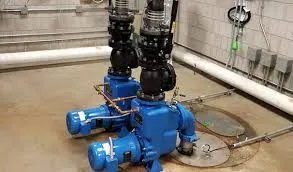English
- Afrikaans
- Albanian
- Amharic
- Arabic
- Armenian
- Azerbaijani
- Basque
- Belarusian
- Bengali
- Bosnian
- Bulgarian
- Catalan
- Cebuano
- Corsican
- Croatian
- Czech
- Danish
- Dutch
- English
- Esperanto
- Estonian
- Finnish
- French
- Frisian
- Galician
- Georgian
- German
- Greek
- Gujarati
- Haitian Creole
- hausa
- hawaiian
- Hebrew
- Hindi
- Miao
- Hungarian
- Icelandic
- igbo
- Indonesian
- irish
- Italian
- Japanese
- Javanese
- Kannada
- kazakh
- Khmer
- Rwandese
- Korean
- Kurdish
- Kyrgyz
- Lao
- Latin
- Latvian
- Lithuanian
- Luxembourgish
- Macedonian
- Malgashi
- Malay
- Malayalam
- Maltese
- Maori
- Marathi
- Mongolian
- Myanmar
- Nepali
- Norwegian
- Norwegian
- Occitan
- Pashto
- Persian
- Polish
- Portuguese
- Punjabi
- Romanian
- Russian
- Samoan
- Scottish Gaelic
- Serbian
- Sesotho
- Shona
- Sindhi
- Sinhala
- Slovak
- Slovenian
- Somali
- Spanish
- Sundanese
- Swahili
- Swedish
- Tagalog
- Tajik
- Tamil
- Tatar
- Telugu
- Thai
- Turkish
- Turkmen
- Ukrainian
- Urdu
- Uighur
- Uzbek
- Vietnamese
- Welsh
- Bantu
- Yiddish
- Yoruba
- Zulu
Telephone: +86 13120555503
Email: frank@cypump.com
Nov . 25, 2024 18:46 Back to list
Cost Analysis of Ejector Pumps for Various Applications and Industries
Understanding Ejector Pump Costs A Comprehensive Guide
Ejector pumps are essential devices used in various applications, including wastewater management, heating systems, and industrial processes. They function by creating a vacuum that allows fluids to be drawn into the discharge line, making them highly effective for transferring liquids from lower to higher elevations or for moving waste materials. While the benefits of ejector pumps are numerous, understanding their costs and factors that influence pricing is crucial for making an informed purchasing decision.
Initial Purchase Price
The initial cost of an ejector pump can vary significantly based on factors such as type, power, and application. On average, prices can range from $300 to $2,500. For residential applications, simple ejector pumps are typically at the lower end of this spectrum, while commercial and industrial models equipped with advanced technology or higher power capabilities can reach the upper limits. It’s essential to consider the intended use when evaluating the suitable price range for your needs.
Installation Costs
In addition to the purchase price, installation costs should also be factored into the overall investment. Proper installation is critical for ensuring optimal performance and longevity. Hiring a professional plumber or technician can add anywhere from $200 to $1,000 to the total cost. While it may be tempting to tackle this task yourself to save money, improper installation can lead to malfunctions or inefficiencies, ultimately costing more in repairs or replacements down the line.
Maintenance Expenses
ejector pump cost

Ejector pumps require regular maintenance to function efficiently and reliably. This includes routine inspections, cleaning, and potential part replacements. Maintenance costs can range from $100 to $500 per year, depending on usage and the type of pump. It’s crucial to keep up with maintenance to avoid costly repairs; a breakdown could lead to significant downtime and inconvenience, particularly in commercial settings.
Energy Consumption
Another cost factor to consider is the energy consumption of ejector pumps. These devices can consume varying amounts of electricity, significantly impacting operating costs. Energy-efficient models may have a higher initial price but can result in lower utility bills over time. Knowing the pump’s power rating and estimated operating hours can help calculate expected monthly energy costs, leading to more informed decisions regarding long-term expenses.
Long-Term Investment
When evaluating ejector pump costs, it's vital to consider the long-term implications. While a cheaper, low-quality pump may save money initially, it may not perform as efficiently or have a longevity comparable to a higher-quality alternative. Investing in a reputable brand known for durability and performance can lead to cost savings in the long run, as these pumps typically require fewer repairs and replacements.
Conclusion
In summary, when considering the costs of ejector pumps, it’s essential to look beyond the initial purchase price. Installation, maintenance, energy consumption, and long-term reliability all contribute to the total cost of ownership. By taking the time to assess these factors, buyers can make informed decisions that align with their budgetary constraints and operational needs. Whether for residential, commercial, or industrial use, understanding the financial implications of ejector pumps will lead to a more satisfactory investment and improved performance over time.
-
ISG Series Vertical Pipeline Pump - Chi Yuan Pumps Co., LTD.|High Efficiency, Energy Saving, Low Noise
NewsJul.30,2025
-
ISG Series Vertical Pipeline Pump- Chi Yuan Pumps|High Efficiency&Low Noise
NewsJul.30,2025
-
ISG Series Vertical Pipeline Pump-Chi Yuan Pumps Co., LTD.|High Efficiency&Energy Conservation
NewsJul.30,2025
-
ISG Series Vertical Pipeline Pump - Chi Yuan Pumps Co., LTD.|Advanced Hydraulic Design&Energy-Efficient Solutions
NewsJul.30,2025
-
ISG Series Vertical Pipeline Pump - Chi Yuan Pumps Co., LTD.
NewsJul.30,2025
-
ISG Series Vertical Pipeline Pump - Chi Yuan Pumps Co., LTD.|energy-efficient fluid handling&industrial durability
NewsJul.30,2025










